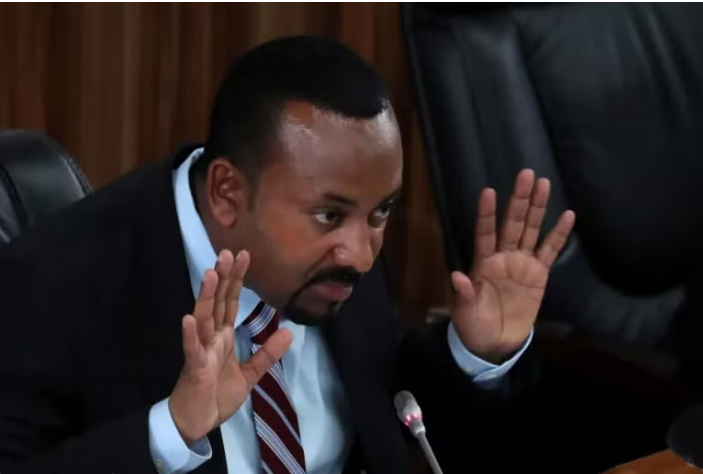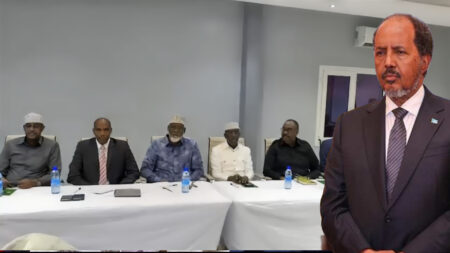Abiy Ahmed’s Spy Background and Online Propaganda Tactics to Destabilize Somalia
Abiy Ahmed, Ethiopia’s Prime Minister, has a history rooted in intelligence services. Before entering politics, Abiy was part of the Information Network Security Agency (INSA), Ethiopia’s cybersecurity and intelligence body, specializing in surveillance and control. Abiy’s role in INSA involved overseeing domestic spying operations. He became proficient in monitoring opposition groups, media, and public sentiment—skills he’s carried into his political career. This background is key to understanding his manipulation of narratives today. As Prime Minister, Abiy initially positioned himself as a reformist, attracting global praise for his peace initiatives and modernization efforts.

However, his spycraft knowledge soon emerged in his administration’s approach to controlling information and propaganda. One of the most effective tools Abiy has employed is digital propaganda. His government has reportedly used troll farms and bots to push pro-Abiy narratives on social media while stifling dissent. This strategy isn’t confined to Ethiopia—it extends to neighboring Somalia.
Ethiopia, under Abiy, has been accused of deliberately spreading disinformation and propaganda to destabilize Somalia. By amplifying narratives that promote division, ethnic strife, and weaken Somalia’s central government, Ethiopia maintains influence over its neighbor. Online disinformation campaigns often portray Somali leadership as lacking legitimacy, undermining public trust. These tactics to fragment Somalia into various pieces fuel existing tensions between Somalia’s federal government and its autonomous regions further fragmenting 🇸🇴 Pro-Abiy accounts have been used to manipulate Somali political discourse, supporting factions and leaders more aligned with Ethiopian interests. This weakens national unity in Somalia and ensures Ethiopia’s regional dominance remains unchallenged.

During periods of conflict, such as Ethiopia’s military actions in the Ogaden and Tigray, Ethiopia’s government-controlled media and social accounts spread propaganda targeting Somali populations. These efforts aim to deflect criticism of Abiy’s policies and actio / Abiy’s intelligence background allows him to skillfully combine traditional statecraft with modern disinformation tactics, both domestically and regionally. By controlling the narrative in Ethiopia and influencing that of Somalia, he consolidates his regional power Moreover, Ethiopia has leveraged internet shutdowns and restrictions to suppress information flow during critical periods. While controlling internal discourse, Abiy’s administration disseminates tailored narratives in Somalia, furthering instability.

Somalia’s fragile state makes it especially vulnerable to these tactics. By supporting militia groups indirectly and fostering discord through online propaganda, Ethiopia can weaken Somali governance without direct military intervention, keeping the region destabilized. Understanding Abiy Ahmed’s intelligence background is crucial to recognizing his broader geopolitical strategy. His use of disinformation to weaken neighboring Somalia is a calculated move to maintain Ethiopia’s influence and prevent any regional competition.
As tensions rise, both inside Ethiopia and in neighboring countries like Somalia, it’s essential to recognize the role online propaganda plays in these conflicts. Abiy’s approach illustrates how modern leaders weaponize digital tools for both domestic and regional power plays. Abiy’s manipulation of Somalia’s political narrative is a reminder that digital warfare is a key element of modern geopolitics. As his regime continues, both Ethiopia and Somalia will face further destabilization unless the flow of disinformation is checked. If you see a faceless Somali X account pushing Ethiopian expansionist propaganda you are not dealing with a Somali




